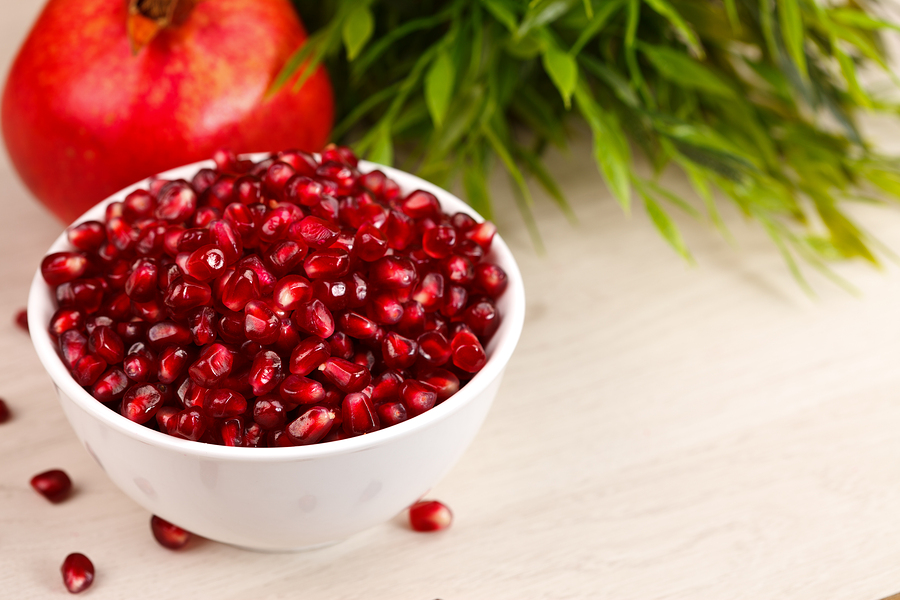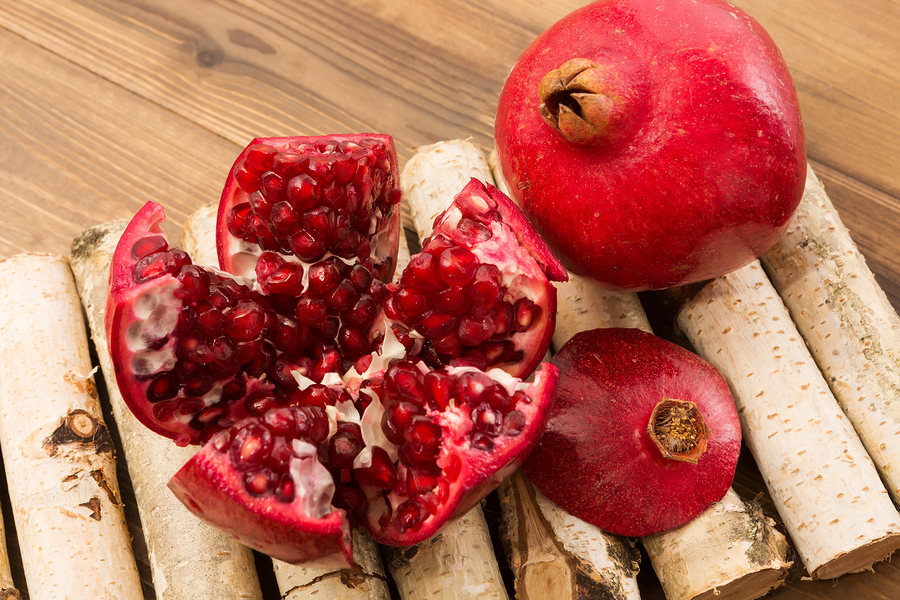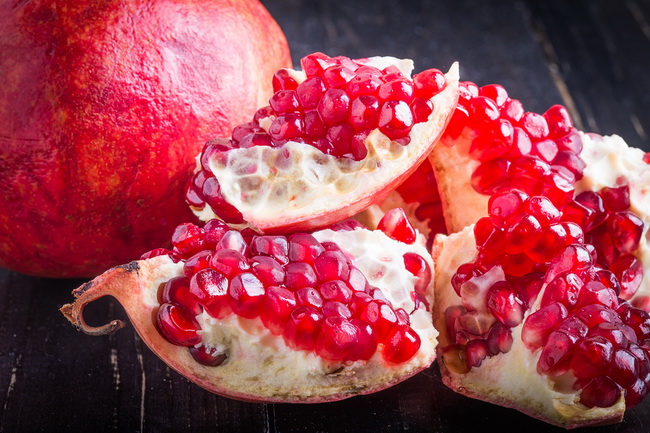- Make It Yourself Lavender Heart-Shaped Bath Bombs!
- 20 Things You Never Knew About “Down There”
- 12 Best Foods For Those Suffering From Arthritis Pain
- 12 Personal Hygiene Mistakes Almost Everyone Makes (Mom Never Told You About #4!)
- 15 Medicinal Plants And Herbs From The Cherokee People
- 12 Mind-Blowing Benefits Of Drinking Coconut Water During Pregnancy
- 12 Outstanding Winter Foods That Won’t Fatten You Up Like A Christmas Turkey
Pomegranates: The Life Saving Super-Fruit?

Photo credit: bigstock.com
There are a variety of fruits out there that have been hailed as “superfoods” over the years. Blueberries, açaí and concord grapes usually come to mind. But more and more research is showing how an unusual Middle Eastern fruit might outshine them all. That fruit is the pomegranate.
What Makes Pomegranates Special?
Research indicates that pomegranates pack an incredible amount of antioxidants. While many fruits have antioxidants, pomegranates are unique in the way that they contain every type of antioxidant. Most fruits only have a few. Antioxidants are essential for preventing oxidative stress on the cells and reducing the amount of free radicals in our body. Oxidative stress is actually what contributes to the aging process, so those who consume a higher amount of them can combat the effects of aging and enjoy a longer lifespan.
Pomegranates have also demonstrated qualities beneficial to those at risk for heart disease. The antioxidants in pomegranate juice have been linked to lowered systolic blood pressure. It also helps prevent, and even reverse, the formation of plaque in the arteries. Pomegranate juice has even shown potential for treating erectile dysfunction, since it increases nitric oxide (N.O.) production, which facilitates blood flow throughout the body, including the genitals.
But the most exciting health potential of pomegranates pertains to its cancer-fighting qualities.
Continue to Page 2

Photo credit: bigstock.com
Pomegranates as a Natural Cancer Killer?
According to the cancer stem-cell hypothesis, all types of cancer are formed by the same type of stem cells which then grow into cancerous tumors. This encompasses all forms of primary and secondary tumors related to cancer. The hypothesis also maintains that cancerous tumors can be heterogeneous— that is, different types of cancer cells can be found within the same tumor. The stem cell creates the tumor, and then new cells begin to form and mutate, explaining the variety in cells. Conventional treatments like chemotherapy are effective against the newer cells, but do not kill the cancer stem cells. This, according to the hypothesis, is why cancers can return even after an apparently successful round of chemotherapy.
This is where Pomegranates Come In.
New research appears to indicate that pomegranates can prevent and destroy a variety of cancers, including colorectal cancer, prostate cancer, breast cancer, and pancreatic cancer.
It is important to keep in mind that this information is relatively new, and that there haven’t been a huge number of studies confirming its effectiveness against cancer stem cells. Having said that, there was a 2010 study done on mice with mammary cancer to ascertain pomegranate’s effectiveness in this regard. The study, which was published in Oncology Reports indicated that various compounds contained in pomegranates have “the ability to target and destroy the cancer stem cells within mammary cancer”.
The study went into detail about the medical potential of “PE” (pomegranate extract) explaining that “in summary, the present study demonstrates that PE is a potent inhibitor of mammary cancer stem cells in vitro. This is the first study to examine the potential of a dietary extract to target cancer stem cells.”
Another study, this time on humans, focused on men with prostate cancer. The purpose was to see if it would affect the time it took for the men’s levels of prostate specific-antigens (PSAs) to double. (The shorter a period of time it takes for PSA levels to double, the greater the risk of death.) The group that drank pomegranate juice significantly delayed the time it took for this to happen, from 15 to 54 months.
Continue to Page 3

Photo credit: bigstock.com
What’s the Best Way to Consume Pomegranates?
While most of the research studies mentioned above have been done on pomegranate juice or pomegranate extract (PE), simply eating it may be the best and most natural way to benefit from this amazing fruit. This will ensure that you do not get too much fruit-sugar or “fructose”. A potential problem with all fruit juice is that the juice is removed from it’s naturally occurring form within the fruit, so you’re getting far more fructose than you would have if you had simply eaten the fruit whole.
Eating whole fruit also gives you the fiber from the fruit, which is an essential nutrient for digestion.
Eating a pomegranate can seem a little puzzling if you’ve never tried one before. You actually eat the seeds, not the flesh of the fruit. The seeds are contained in little juice-filled sacs called arils, which are deep red in color and have a rich, intense flavor. The average pomegranate has around 600 arils, which are separated by a thin white membrane which is not edible.
It can appear to be cumbersome to eat. Is it worth putting in all the work? We’ll show you how to get around this problem now.
1) Cut off the crown of the pomegranate into sections, 4-6 is good.
2) Put sections in a large bowl of water, and scoop the seeds out with your fingers. Throw away the rest of the fruit, it’s not edible.
3) Strain out the water, and eat the arils. You don’t need to spit out or separate the seeds. Don’t overthink it, just eat ‘em whole.
READ ALSO: Top 35 Alkaline Foods To Naturally Balance Your pH (This Is A MUST Read List!)
As more evidence builds regarding the pomegranate’s healthy properties, including fighting cancer, we’ll be sure to keep you informed. Until then, take the preventative course and enjoy this delicious super-fruit!
References:
































